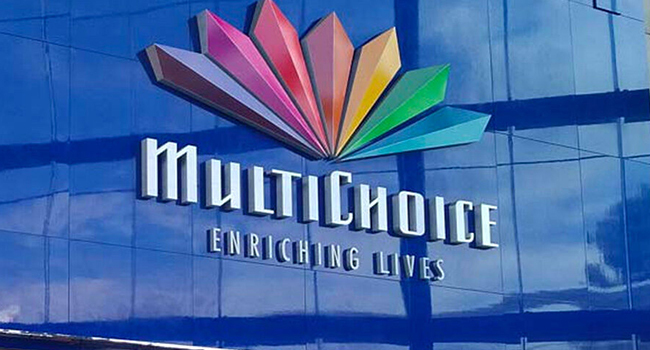France’s Canal+, already holding more than 35 percent of MultiChoice’s shares, sets the stage for a potential takeover bid, placing the South African company in a pivotal position.
South Africa’s TV giant MultiChoice reported a pretax loss of 706 million rand ($38 million) for the year ending in March. The company attributed this loss to weak local currencies and a drop in subscribers. The depreciation of local currencies increased costs, while the decline in the number of subscribers reduced revenue.
The company is the subject of a takeover bid by France’s Canal+, which already holds more than 35 percent of MultiChoice’s shares.
“Volatile and weaker local currencies, power challenges in markets like South Africa, and a weak consumer environment due to rising inflation and high interest rates have created an extremely challenging environment,” MultiChoice said.
The takeover bid from Canal+ comes at a time when MultiChoice is navigating a difficult financial landscape. The depreciation of local currencies has increased operational costs, while power shortages in key markets like South Africa have disrupted services and added to operational difficulties. Additionally, the consumer environment has been weakened by rising inflation and high interest rates, reducing disposable income and affecting subscriber numbers. These compounded challenges have significantly impacted MultiChoice’s financial stability and performance.
The loss came after the company had reported a pretax profit of 921 million rand the previous year.
The loss was compounded by a nine percent decline in subscriptions.
Business in South Africa suffered from 275 days of rolling power cuts, which discouraged potential subscribers who lacked backup power, the company stated.
Group revenue also decreased by five percent, down to 56 billion rand. However, the firm indicated that without the impact of currency fluctuations, revenue would have actually increased by three percent.
As Africa’s largest pay TV enterprise, MultiChoice announced plans to accelerate its cost-saving program, prioritize customer retention, leverage sports renewals, and further develop local content. These measures aim to counteract the challenges posed by economic conditions, power shortages, and market volatility.
Its Showmax video streaming business, which re-launched in February, has been showing “encouraging early traction” with a 16 percent growth in the paying subscriber base, the company reported.
In April, Canal+, a subsidiary of the Vivendi group led by billionaire Vincent Bollore, made a firm offer to acquire all MultiChoice shares it does not already own. This followed an earlier bid that had been rejected. The new offer was 125 rand per share, an amount deemed “fair and reasonable” by an independent board appointed by MultiChoice.
Canal+ is active in 25 African countries through 16 subsidiaries and has eight million subscribers, according to the French group.
Canal+’s stake in MultiChoice, Africa’s largest pay TV enterprise, has allowed it to gain a significant foothold in English-speaking and Portuguese-speaking nations across the continent. This strategic investment has enabled Canal+ to expand its presence beyond its traditional Francophone markets, tapping into a broader and more diverse audience base. By leveraging MultiChoice’s extensive infrastructure and subscriber network, Canal+ can enhance its reach and influence in the rapidly growing African media and entertainment industry.








